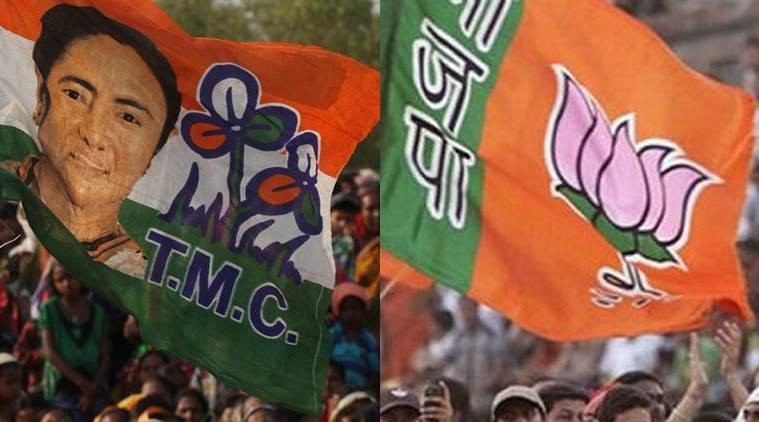
The Darjeeling Lok Sabha constituency straddles both the hills and plains, and the contrasting political narratives in these two regions set the constituency apart from the rest of West Bengal. The forthcoming polls promise to be a barometer on the issue of popular support for a separate Gorkhaland. The demand, which had widened the chasm between the people of the hills and plains, appears to have been pushed to the margins of political discourse in recent times.
Voters from the plains may be numerically dominant, but the poll preferences of people in the two hill districts of Darjeeling and Kalimpong could be a determining factor in the constituency, as had been the case earlier. Significantly, it is for the first time since the separate statehood demand had captured the popular narrative in the mid-1980s that the likelihood of the electorate in the hills voting en bloc has been virtually eliminated. This can decisively change the electoral arithmetic in the constituency.
A number of regional variables, and their underlying sub-texts, can affect the outcome of the contest. To the hill voter, it provides an opportunity for the first time to either affirm or reject the legitimacy of the dispensation presently in charge of the functioning of the regional quasi-autonomous administrative set-up – the Gorkhaland Territorial Administration (GTA) — to which elections have been put on hold ever since the 104-day June-September 2017 agitation for statehood. The Board of Administrators (BOA) for the body, put in place by the West Bengal government in the aftermath of the unrest then, has been living on borrowed time. It is a nominated body, and not a popularly elected one.
The claims of rival camps to the leadership of the Gorkha Janmukti Morcha (GJM) — the principal political formation in the hills — will also be put to test. On Tuesday, Chief Minister Mamata Banerjee announced that Amar Singh Rai, who belongs to the Binay Tamang-led faction, will contest on a TMC ticket.
The nomination of Rai is a case study in quid pro quo. Banerjee had successfully weaned Tamang and his associates away from the leadership spearheading the GJM-sponsored statehood agitation, positioning him at the helm of the BOA. This created a wedge within the GJM and snuffed out – at least for now – the Gorkhaland campaign. And, as if in return for Banerjee's favours, the Tamang camp within the party consented to Rai, a GJM legislator, contesting under the Trinamool Congress symbol. This is being popularly viewed as part of a design aimed at extending the influence of Banerjee’s party in the hills, riding piggyback on Tamang’s camp within the GJM.
The Trinamool Congress has never won the Darjeeling Lok Sabha seat, but hopes to cash in this time around on the altered political narrative in the hills. This is despite its failure so far to bring on board other disparate political groupings in the hills.
Tamang might have assumed the leadership of the GJM in the absence of his chief adversary, fugitive GJM leader Bimal Gurung, but his credibility will be put to test for the first time when he stands for the election.
Gurung has been on the run ever since being slapped with charges under the Unlawful Activities (Prevention) Act in August 2017. However, he and his acolytes have not backed down from their claims of being the “official” representatives of the party. The odds stacked against him in staging a political comeback have only mounted with his name being struck off the voters’ list by the authorities in June 2018. Only recently, following a petition from Tamang seeking an order directing the Election Commission (EC) to delete the names of Gurung and Roshan Giri (of the Gurung camp) as GJM president and secretary respectively, the Calcutta High Court reportedly requested the EC to settle the intra-party dispute of the GJM within a fortnight by giving an opportunity to both the contending camps to present their cases.
The BJP, which has held the seat for the past decade thanks to en masse support of the GJM when it was a single unit led by Gurung, now finds itself on a sticky wicket. Most hill parties have come together in accusing the Narendra Modi government of “betrayal” of the Gorkha cause by failing to address the long-standing demands of the community. This includes the demand for a separate state, which the Centre had promised to look into. People in the hills feel let down by the demand for tribal status for eleven communities being ignored.
The groups representing the hill residents have had a decisive say in the outcome of the election to the Darjeeling Lok Sabha seat. However, no victory is possible without the tutelage of a party that has a firm footing in the plains, a region that is spread over four of the seven Assembly segments spanning the parliamentary constituency. This factor will have a critical bearing on the outcome in 2019, given the diminishing likelihood of en bloc voting in the hills.


.jpeg)

